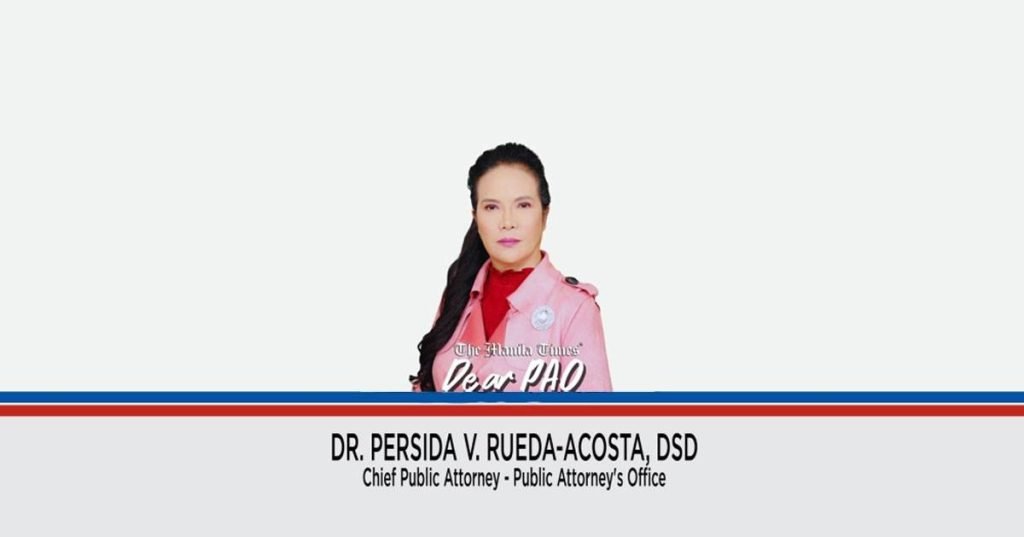
Dear PAO,
I am a fresh graduate and will do my first work in the City of Caloocan. I am currently residing in San Rafael, Bulacan. Given the distance and worsening traffic scenario in Metro Manila, I plan to rent a residential unit near my work. I would like to ask what the pertinent rules and regulations related to the lease of residential properties or the things that I should be aware of relative to the rental of properties.
Jena
Dear Jena,
It is a good thing to know the rules and regulations relative to the rental of properties, as it will be your safeguard in case of conflicts between the lessor and lessee. It may also protect the tenant from any arbitrary and exorbitant increase in rental rates. Currently, we have Republic Act (RA) 9653 or the Rent Control Act of 2009, which regulates the industry of housing rentals nationwide. This law covers rentals of residential units having monthly rental rates of one peso to P10,000 for the National Capital Region and other highly urbanized cities and one peso to P5,000 in other areas. Expressly excluded under the law are properties under a rent-to-own scheme that will result in the transfer of ownership of the particular dwelling in favor of the lessee, as well as those primarily intended for commercial purposes.
Under this law, the lessor may legally demand a one-month advance and two–month deposit, which shall be paid in advance within the first five days of every current month or the beginning of the lease agreement unless the contract of lease provides for a later date of payment.
On the matter of rental rate, the law provides that the rent of any residential unit covered by this law shall not be increased by more than 7 percent annually as long as the unit is occupied by the same lessee. In case of a new lessee, the lessor may set anew the initial rental rate. Further, in the case of boarding houses, dormitories, rooms and bed spaces offered for rent to students, no increase in rental more than once per year shall be allowed. For 2024, pursuant to National Human Settlement Board Resolution 2023-03 approved on Oct. 13, 2023, a 4 percent cap in the increase for monthly rental rates of P10,000 and below, effective Jan. 1 to Dec. 31, 2024, was imposed.
This law also outlined circumstances under which a lessor can legally terminate the lease contract and consequently eject the tenant, to wit: a) Sub-leasing the unit without explicit written permission from the owner; b) Accumulating three months’ worth of unpaid rent; c) The owner’s legitimate need to repossess the property for personal or family residential use, provided three-month advance notice is given to the tenant; d) Essential repairs mandated by authorities on a condemned property to ensure safety and habitability; and e) Expiration of the lease contract. It is prohibited to eject a lessee by reason of sale or mortgage of the property, regardless of whether the lease or mortgage is registered or not.
We hope that we were able to answer your queries. This advice is based solely on the facts you have narrated and our application of the same. Our opinion may vary when other facts are changed or elaborated.
Editor’s note: Dear PAO is a daily column of the Public Attorney’s Office. Questions for Chief Acosta may be sent to [email protected]







